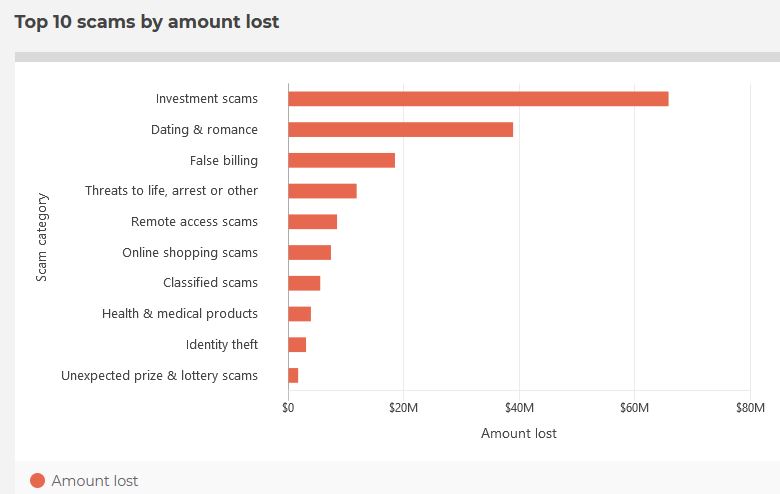The ACC as released stats on romance scams – especially relevant on V-day, Sunday 14 February. In essence, in 2020 some 3,708 people lost $38,916,120. The 2021 year is off to a shocking start with 264 cases and $5,903,327 in losses.
Romance scams affect all age groups. The amount lost is more prevalent in the 45-54 age group where desperate and dateless seem to be easy prey. Women are more at risk accounting for 72.2% of losses.

And location plays a big part, although we are not sure why (apart from population numbers). NSW is way ahead on the scam scale.

How people fall for romance scams
The vast majority of scams now come via social networking (Facebook). Here over sharing of private information leaves you vulnerable. It could be as innocent as a photo of poor Aunt Annie being lonely to someone’s spouse dying. Automated bots scrape social media for these terms. Then AI analyses what they know about you and produce hit lists for scam operators.
Next most risky are dating apps where you think you have met Mr/Mrs/Other ‘Right’ and conduct a long-distance relationship. It is not long before the scammer asks for money to visit you to take the next step.
Internet is the third major cause and visits to porn and dating sites can lead to entrapment. Fourth is email, and its importance is declining as people learn not to trust unsolicited approaches. However, many scams use email, SMS and phone as the medium.
In January 2021, there was a disturbing trend aimed at the over 65s. Scammers are going in person to nursing homes, retirement villages and seniors’ clubs to prey on those looking for love. It seems that the in-person approach works fastest.
You can read all about this and other scams at the ACCC website.

For more GadgetGuy reports about recent scams, click here








